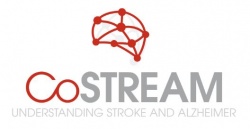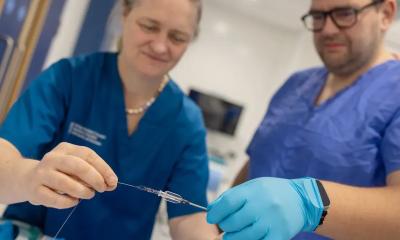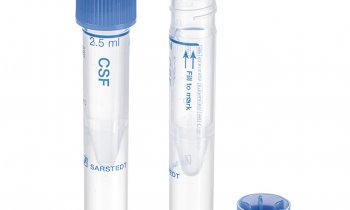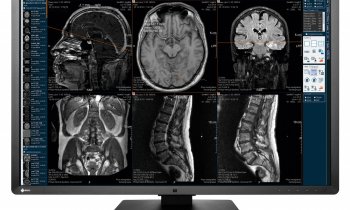Partners in crime: Stroke and Alzheimer’s disease
New EU-funded project CoSTREAM targets the common mechanisms and pathways of stroke, Alzheimer’s disease to improve disease prevention and treatment, by combining clinical, genetic, epidemiologic, metabolic and radiologic research to develop an organ-on-a-chip in vitro model for the blood-brain connection that will revolutionise drug-development.

Stroke and Alzheimer’s disease are major diseases imposing a huge burden on aging societies. It has long been recognized that stroke and Alzheimer’s disease often co-occur, and it has been speculated that the two disorders have an overlapping pathogenesis. One in four patients develops dementia within ten years of suffering from a stroke, with a substantial proportion developing Alzheimer’s disease. Similarly, many elderly patients with Alzheimer’s disease suffer from co-morbid cardiovascular disease, type-2 diabetes, high blood pressure, high cholesterol levels or obesity – all of which are strong risk factors for stroke. As such, these two diseases are not just considered to be fellow travellers, but rather partners in crime.
To date it has been unknown what the underlying molecular mechanisms explaining both disorders are.
The Horizon 2020 project CoSTREAM aims to identify these common mechanisms and pathways in stroke and Alzheimer’s disease, using a multidisciplinary approach that incorporates novel analytical strategies and emerging technologies in the fields of genetics, metabolomics, brain imaging and clinical prediction. Over the course of its 5-year duration, CoSTREAM will drastically improve our understanding of the link between these diseases, and identify possible targets for future therapeutic intervention.
CoSTREAM builds upon an extensive infrastructure of unique clinical and epidemiological longitudinal follow-up studies including tens of thousands patients with stroke of Alzheimer’s disease. These patients have been characterised in detail for genetic and environmental determinants. CoSTREAM will enrich the studies with state-of-the-art metabolomics and radiological research to investigate and understand the common pathways leading to the two most common neurological disorders in the elderly.
The ultimate goal of CoSTREAM is to use these new insights to improve the treatment and prevention of stroke and Alzheimer’s disease. To this end, CoSTREAM will develop a beyond-state-of-the-art “organ-on-a-chip” in vitro model of the neurovascular unit – the site connecting blood vessels and brain cells – using commercially available cell lines and patient-derived stem cells. An in vitro model like this can revolutionise the development of targeted therapeutic strategies against stroke or Alzheimer’s disease, by allowing rapid investigation of the effect of potential drugs on molecular pathways implicated in both diseases during the project.
CoSTREAM’s innovative, multidisciplinary approach impressed reviewers of the EU Horizon 2020 research programme, who awarded the project proposal the highest evaluation score possible.
For more information go to www.costream.eu!
Background:
The five-year project recently started in December 2015 with a successful kick-off meeting in Rotterdam, the Netherlands. CoSTREAM’s consortium consists of eleven organisations and includes epidemiologists, geneticists, radiologists and neurologists with a longstanding track-record on the aetiology of both stroke and Alzheimer’s disease.
Project partners: Erasmus University Medical Center, NL (coordinator), European Institute for Biomedical Imaging Research, AT (project management), Institut Pasteur de Lille, FR, Karolinska Institute, SE, King's College London, UK, Leiden University, NL, Ludwig-Maximilians-University Munich, DE, MIMETAS, NL, University of Bordeaux, FR, University of Cambridge, UK, University of Geneva, CH
09.05.2016











